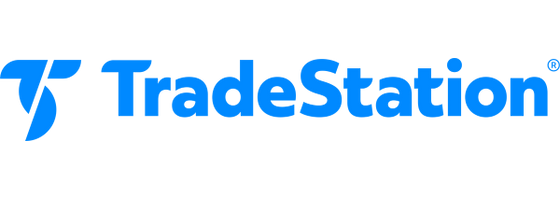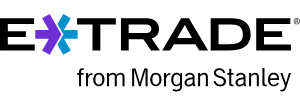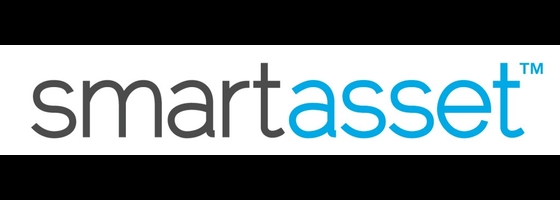Our evaluations and opinions are not influenced by our advertising relationships, but we may earn a commission from our partners’ links. This content is created independently from TIME’s editorial staff. Learn more about it.
Whether you’re an experienced investor or just getting started, you can buy and sell stocks, ETFs, and other investments via an online broker. The best online brokers have $0 stock and ETF trading, thousands of no-transaction-fee (NTF) mutual funds, and low-cost futures and options trades. The top online brokers also offer robust trading platforms, plenty of tools for researching and managing your investments, and excellent customer support that’s available when you need it.
Choosing an online broker can be tricky, with dozens of options. To help you get started, here are our top picks for online brokers that can meet the needs of everyday investors.

J.P. Morgan Self Directed Investing
J.P. Morgan Self Directed Investing
$0 stock & ETF trades.
$0.65/contract options trades.
$0 mutual funds trades.
Disclosure
INVESTMENT AND INSURANCE PRODUCTS ARE: NOT A DEPOSIT • NOT FDIC INSURED • NO BANK GUARANTEE • MAY LOSE VALUE
Best brokerage accounts for online trading compared 2024
| Broker | Best for | Online trafding fees | Account minimum | Promotion |
|---|---|---|---|---|
high APY on uninvested cash | $0 commissions (other fees may apply) Gold subscription fee applies after 30-day free trial | $0 | New customers earn 5.25% APY for a limited time. No minimum balance & cancel anytime. Terms apply. | |
Active traders | $0 stock & ETF trades; $0.60/contract options trades; $1.50/contract futures trades; $14.95 mutual fund trades. | $0 | N/A | |
Beginners | $0 stock & ETF trades; $0.65/contract options trades; $0 mutual funds trades. | $0 | Get up to $700 when you open & fund an account with qualifying new money. Offer expires 7/19/24. | |
Options rebates | $0 stock & ETF trades; 1.25% crypto fee. | $0 | N/A | |
Alternative assets | 1% to 4% annual management fee | $10,000 | $100 when you refer a friend who opens a new account (up to $2,000 annually) | |
Low costs | $0 stock & ETF trades; $0.50/contract options trades; $0 mutual fund trades; $1 bond trades. | $0 | $75 credit when you transfer at least $2,500 from another broker. | |
Low-cost options trades | $0 stock & ETF trades; 0/contract options trades; 1.25% crypto fee. | $0 | N/A | |
Stock rewards | $3 or $9 monthly fee. | $0 | N/A | |
Simple interface | $0 stock & ETF trades; $0 mutual fund trades; 0.50% crypto fee. | $0 | $10 sign-up bonus. | |
Axos Self-Directed Trading | Mutual-fund investors | $0 stock & ETF trades; $0 mutual fund trades; $1/contract options trades | $0 | N/A |
Fidelity Investments | Overall trading | $0 stock & ETF trades; $0.65/contract options trades; $0 Fidelity mutual funds; 3,300+ NTF funds. | $0 | Get $100 when you open a new account with $50 or more. |
E-Trade | Mobile app | $0 stock & ETF trades; $0.65/contract options trades; $1.50/contract futures trades; 6,500+ NTF mutual funds. | $0 | N/A |
TD Ameritrade | Investor education | $0 stock & ETF trades; $0.65/contract options trades; $2.25/contract futures trades; 3,600+ NTF mutual funds. | $0 | N/A |
Charles Schwab | Long-term investing | $0 stock & ETF trades; $0.65/contract options trades; $2.25/contract futures trades; $0 OneSource mutual fund trades. | $0 | N/A |
Broker-assisted trades incur additional commissions and fees.
Our recommendations for the best online brokers
Best for high APY on uninvested cash: Robinhood Gold

Robinhood Gold Trading
Robinhood Gold Trading
New customers earn 5.25% APY for a limited time. No minimum balance & cancel anytime. Terms apply.
*limited time offer and subscription fee applies
If you like Robinhood and want to take your investing to the next level, consider Robinhood Gold. For $0 commissions (other fees may apply) Gold subscription fee applies after 30-day free trial, you’ll get access to a suite of premium tools and features, including lower margin rates, Level II market data from Nasdaq, and professional research from Morningstar. Existing customers earn 5.00% interest on your uninvested cash —a rate that’s competitive with some of the best high-yield savings accounts. Whether or not you’re a Gold subscriber, you can invest and trade commission-free on Robinhood.
Best for active traders: TradeStation

TradeStation
TradeStation
$0 stock & ETF trades.
$0.60/contract options trades.
$1.50/contract futures trades.
$14.95 mutual fund trades.
TradeStation is widely considered one of the top platforms for active, technical traders. It offers $0 stock and ETF trades, $0.60/contract options trades, and $1.50/contract futures trades. The robust TradeStation platform offers exceptional charting, fully customizable workspaces, 120+ technical indicators, a massive collection of historical data, and multiple order entry interfaces. You can also design, backtest, optimize, and automate your own strategies for equities, options, and futures trading.
Best for beginners: J.P. Morgan Self-Directed Investing

J.P. Morgan Self Directed Investing
J.P. Morgan Self Directed Investing
$0 stock & ETF trades.
$0.65/contract options trades.
$0 mutual funds trades.
Disclosure
INVESTMENT AND INSURANCE PRODUCTS ARE: NOT A DEPOSIT • NOT FDIC INSURED • NO BANK GUARANTEE • MAY LOSE VALUE
J.P. Morgan Self-Directed Investing is a solid option for beginners interested in learning how to buy and sell stocks, ETFs, options, bonds, and mutual funds. It offers $0 stock, ETF, and mutual fund trades, plus $0.65/contract options trades. You’ll find a user-friendly trading platform, plus an app that integrates seamlessly with other Chase products (including bank accounts and credit cards). For this reason, J.P. Morgan Self-Directed Investing may be especially attractive to existing Chase customers.
Best for options rebates: Public

Public App
Public App
$0 stock & ETF trades.
1.25% crypto fee.
Public offers an unusual lineup of assets, including stocks, Treasuries, ETFs, crypto, art and collectibles, and music royalties—with more alternative assets coming soon (alternative assets tend to have a low correlation to traditional markets, so you can potentially use them to diversify your portfolio). Unlike many brokers, Public doesn’t participate in payment for order flow (PFOF). This means your orders are routed directly to the exchanges instead of to market makers, which helps Public execute orders at the best possible price.
Best for alternative assets: Yieldstreet

YieldStreet
YieldStreet
Best for low costs: Ally Invest

Ally Invest
Ally Invest
$0 stock & ETF trades.
$0.50/contract options trades.
$0 mutual fund trades.
$1 bond trades.
Ally Invest is our top pick for low costs with $0 stock, ETF, and mutual fund trades, $1 bond trades, and a low $0.50 (per contract) options trades for self-directed traders. And you can quickly move money from your brokerage account into an Ally savings account to earn a much higher rate than most brokers offer on uninvested cash (currently 4.25% APY). Ally also provides robo portfolios for hands-off investors, with zero advisory, rebalancing, and annual fees.
Best for low-cost options trading: SoFi Invest

Sofi Invest
Sofi Invest
$0 stock & ETF trades.
0/contract options trades.
1.25% crypto fee.
SoFi has eliminated per-contract options fees, making it a budget-friendly choice for frequent options traders (by comparison, many brokers charge between $0.65 and $1 per contract). Its user-friendly options-trading platform has an educational content hub and an in-app trading guide to help beginners learn more about options trading. You’ll also have one-click access to helpful metrics like breakeven percentage, maximum profit and loss, and more.
Best for stock rewards: Stash

Stash
Stash
Stash lets you choose how to invest—whether you’re a self-directed DIY investor or prefer automated investing that removes the guesswork. Monthly plans cost $3 or $9, with no add-on transaction fees. You’ll have access to a personal brokerage account, a retirement account, and Smart Portfolio—a robo-advisor that builds a diversified portfolio based on your risk profile. You’ll also receive the Stock-Back debit card that earns up to 1% back in stock every time you use the card (excluding cash withdrawals, money orders, prepaid cards, and P2P payments).
Best for simple interface: Plynk

Plynk Invest
Plynk Invest
$0 stock & ETF trades.
$0 mutual fund trades.
0.50% crypto fee.
$0
Plynk offers a brokerage account for investing in stocks and funds, and a crypto account for trading cryptocurrencies. It has $0 fees for stock, ETF, and mutual fund trades. There’s a $0.50 fee for crypto trades of $100 or less and 0.50% of the trade amount above that. The Plynk mobile app is intuitive and user-friendly, and you’ll find plenty of straightforward tips and how-tos to help you grow your investing knowledge.
Best for mutual-fund investors: Axos Self-Directed Trading

Axos Self Directed Investing
Axos Self Directed Investing
Axos Self-Directed Trading offers commission-free stock and ETF trades plus access to 10,000+ no-transaction-fee mutual funds, making it our top choice for mutual-fund investors. Its research and education offerings are limited compared to many online brokers. However, you can access stock market research and analysis through TipRanks with an Axos Elite account for $10 per month. The Elite account also gets you lower options fees, access to margin trading, real-time market data, and extended market hours.
Best for overall trading: Fidelity Investments

Fidelity Investments Brokerage Account
Fidelity Investments Brokerage Account
$0 stock & ETF trades.
$0.65/contract options trades.
$0 Fidelity mutual funds.
3,300+ NTF funds.
Fidelity Investments has topped numerous “best of” lists. It offers $0 stock and ETF trades, $0.65/contract options trades, $0 Fidelity mutual fund trades, and some 3,300 NTF mutual funds. Beginners and buy-and-hold investors will likely find all the tools they need within the web platform, including screeners, educational content, and in-house and third-party research. More advanced and frequent traders can use Fidelity’s Active Trader Pro platform, which offers more bells and whistles and a customizable layout.
Best for mobile trading: E*TRADE

E-Trade
E-Trade
$0 stock & ETF trades.
$0.65/contract options trades.
$1.50/contract futures trades.
6,500+ NTF mutual funds.
E*TRADE was the first U.S. broker to offer online trading for retail investors and is now part of Morgan Stanley. It offers $0 stock and ETF trades, $0.65/contract options trades, $1.50/contract futures trades, and 6,500+ NTF mutual funds. E*TRADE offers several trading platforms to suit investors of various skill levels. The E*TRADE Web platform is ideal for beginners, while more active traders can use the robust Power E*TRADE platform. The highly rated E*TRADE Mobile app is feature rich and user-friendly, while Power E*TRADE Mobile is designed for more advanced trading.
Best for investor education: TD Ameritrade

TD Ameritrade
TD Ameritrade
$0 stock & ETF trades.
$0.65/contract options trades.
$2.25/contract futures trades.
3,600+ NTF mutual funds.
TD Ameritrade is a popular choice for beginners due to its excellent research and educational tools. It offers $0 stock and ETF trades, $0.65/contract options trades, $2.25/contract futures trades, and 3,600+ NTF mutual funds. In addition to a robust library of content, TD Ameritrade hosts hundreds of webinars, virtual workshops, and in-person events each year, covering everything from stock investing basics to advanced options strategies.
Best for ETF research: Charles Schwab

Charles Schwab
Charles Schwab
$0 stock & ETF trades.
$0.65/contract options trades.
$2.25/contract futures trades.
$0 OneSource mutual fund trades.
Charles Schwab pioneered the discount brokerage business in 1974, offering low prices and fast, efficient order executions. Today, the company is the largest publicly traded investment services firm in the U.S., with about $7.65 trillion in client assets. It offers $0 stock and ETF trades, $0.65/contract options trades, $2.25/contract futures trades, and $0 OneSource mutual fund trades. Besides Schwab ETFs, you can access over 2,000 third-party, commission-free ETFs covering a broad range of asset classes—and its ETF screeners are best-in-class.
Find more online stock brokers
Our methodology
We rate brokers on a scale of one to five stars across six categories that are important to average investors, including:
- Investment selection – the variety of investment products offered.
- Fees and commissions – the average investor’s trading costs, margin rates, and account fees.
- Trading technology – the quality of the online and mobile trading platforms.
- Research amenities – technical and fundamental tools to make informed investment decisions.
- Customer support – the ease and availability of contacting live help.
The most highly rated brokers have a full range of investment offerings, low fees, a robust trading platform, a well-rounded collection of research tools, and excellent customer support. Brokers with limited product offerings, higher costs, basic trading technology, few research tools, and poor customer support receive the lowest scores.
How to pick the best online broker for you
When choosing an online broker, start by focusing on brokers that offer the investments you want to trade—whether stocks and bonds or something more exotic such as futures and crypto. From there, consider the factors that are most important to you, such as:
- Commissions and fees.
- Pricing and execution.
- Trading platform features.
- Education and research tools.
- Promotions and bonuses.
Ultimately, the best trading platform for you will offer your preferred investments, a fee structure that works for your trading style, and the tools and features you need to maximize your trading performance.
Alternatives to online brokers
Online brokers are ideal for self-directed traders and investors who are comfortable researching, placing, and monitoring their own trades. If you don’t have the time, experience, or interest to manage your own investments, you might prefer a robo-advisor or financial advisor.
Robo advisors
Robo-advisors (aka automated investing services) have grown in popularity in recent years for their low-cost, hands-off approach to investment management. Robo-advisors are software platforms that use algorithms to build and manage an investment portfolio based on your investing preferences, goals, time horizon, and risk tolerance. Robo-advisors typically choose a portfolio of exchange-traded funds (ETFs) to create a balanced and diverse portfolio. Because robo-advisors are automated, they are generally much cheaper than traditional financial advisors.
M1 Finance seamlessly integrates the finest aspects of both a brokerage firm and a robo-advisor, resulting in a unique offering that caters exceptionally well to certain clientele. Similar to a traditional broker, M1 Finance empowers you to invest in a wide array of options according to your preferences. Yet, akin to a robo-advisor, it allows you to automate your investment journey entirely, simplifying the process. Remarkably, the service is provided completely free of charge.
Financial advisors
Financial advisors assist clients with various money matters, such as investments, retirement planning, estate planning, budgeting, and more. You can work with a financial advisor just a few times if you need specific advice, or over time if you prefer long-term guidance. If your advisor is local, you might have in-person meetings. Otherwise, many financial advisors are available via phone and virtual conferences (e.g., Zoom). Because financial advisors are people — not computers — they are more expensive than automated robo-advisors. However, financial advisors often take a holistic approach, which can help you achieve your overall financial goals.
WiserAdvisor serves as an innovative online platform that establishes connections between individuals and meticulously vetted, expert financial advisors. Through this platform, users can effortlessly discover skilled professionals who specialize in a wide range of financial domains, including but not limited to retirement planning, estate planning, investment planning, and tax planning. By utilizing SmartAdvisor by SmartAsset, individuals can navigate the process of finding the ideal financial advisor in a convenient and seamless manner.

SmartAdvisor by SmartAsset
SmartAdvisor by SmartAsset
Frequently asked questions (FAQs)
Are online brokers safe?
The Securities Investor Protection Corporation (SIPC) protects the securities and cash in your brokerage account up to $500,000, including a $250,000 cash limit, provided that your broker is a SIPC member (most U.S. brokerage firms are required to be). In addition, you must have securities in your account or have cash in the account to buy securities. SIPC doesn’t protect:
- Investments if your broker isn’t a SIPC member.
- Market losses.
- Promises of investment performance.
- Commodities and futures contracts.
Can you transfer stocks between brokers?
Investors swap brokers for various reasons, such as accessing different investments, lowering trading costs, or graduating to a more advanced platform. If you decide to switch, you can transfer your stock shares via a special clearinghouse called Automated Customer Account Transfer Service (ACATS).
The easiest way to transfer stocks is to move them between similar accounts. For example, if your stocks are in a taxable brokerage account, you would move them into another taxable brokerage account. Or, if the shares are in your individual retirement account (IRA), you would transfer them to a different IRA. Moving shares between different types of accounts is possible, but the process can be a bit more complicated and time-consuming.
When you’re ready to transfer stocks, contact your new broker (the receiving broker) to fill out a transfer initiation form and provide the required information.
How do online trading platforms work?
A trading platform is an online, mobile, or desktop interface that your broker provides and you use to execute trade orders, monitor positions, and manage your account. Many platforms offer real-time quotes, advanced charting, technical indicators, fundamental research tools, news feeds, in-house and third-party analysis, backtesting, and strategy automation to help you make well-informed investment and trading decisions.
How quickly can you start trading?
The account opening process for online brokers is typically straightforward. Once your account is approved and funded, you can start trading immediately. Depending on the broker, the entire process can take several hours or up to a week. There are additional requirements for margin accounts or if you want access to futures or options markets.
The information presented here is created independently from the TIME editorial staff. To learn more, see our About page.

